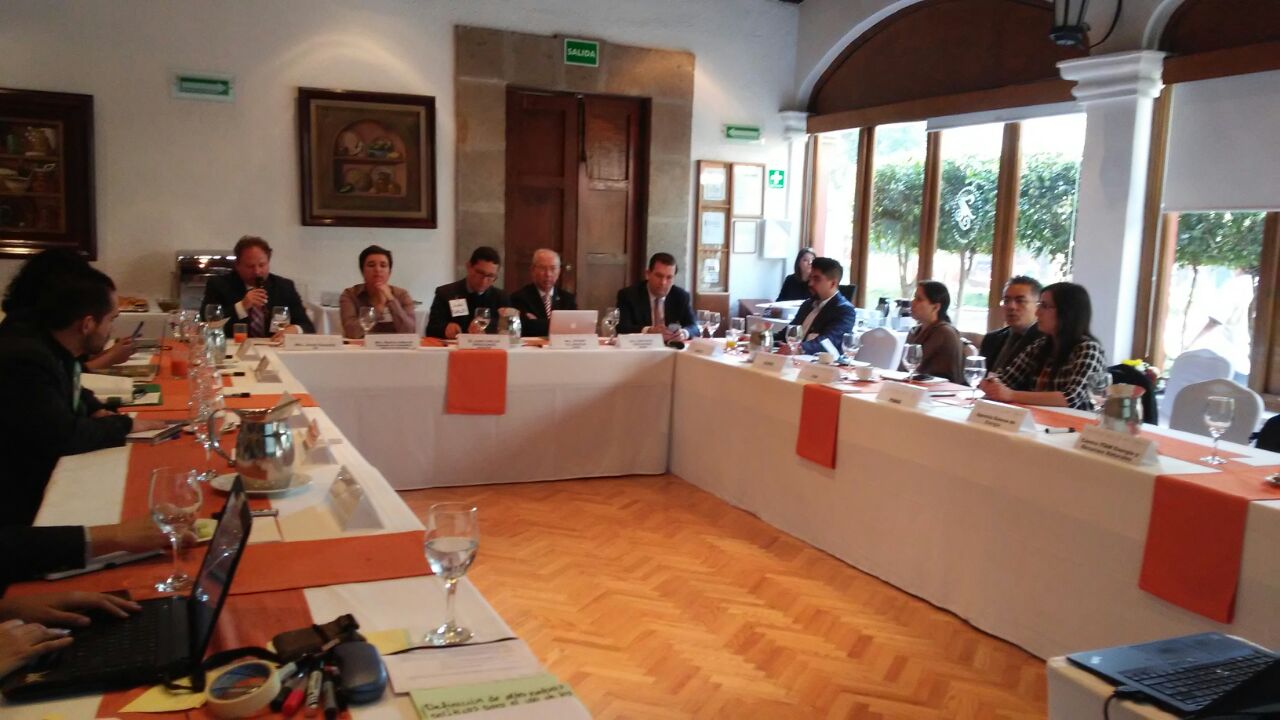CONECC – Enhancing the Coherence of Climate and Energy Policies in Mexico
Starting Point
In the context of its Energy Transition, Mexico has promoted the diversification of its energy matrix, as well as energy efficiency actions that contribute to the achievement of national climate goals. The aim is to achieve a 35% participation of clean energies in the electricity generation matrix by 2024, in accordance with the Mexican Energy Transition Law. Likewise, with the reform of the June 2018 General Climate Change Law, Mexico has harmonized its commitments against climate change, made in the framework of the Paris Agreement and formulated in its Nationally Determined Contributions (NDC), which state an intention to reduce unconditionally its emissions of greenhouse gases and compounds by 22% by 2030, or up to 36% conditional to the implementation of international technology transfers and carbon pricing, among other factors.
Objective
The project aims to build capacities of the main stakeholders of climate and energy policy in Mexico in order to initiate or implement political and institutional measures which improve the collaboration between the energy and climate sector. By doing so, Mexico will be able to strengthen the contribution from its energy sector towards the country’s climate objectives.
Our Approach
The project is being implemented in the context of the transformation of Mexico’s energy system with the objective of building bridges between the energy and climate change sector and harmonizing climate and energy policies. To this end, the project advises the Ministry of Environment and Natural Resources (SEMARNAT) on technical and processes aspects of the climate-energy interface.
The articulation between climate and energy policies at a national level will improve if strategic measures are applied. In addition, the project fosters the development of regulatory instruments and economic incentives to promote the convergence of climate and energy policies. Furthermore, national information systems are being improved to achieve a greater integration of energy and climate data and variables. This project facilitates the creation of improved framework conditions to promote investments in the Mexican energy sector that favor development and climate protection. The set of experiences gathered in the country is debated through a dialogue between experts in the international arena, and the knowledge and experiences acquired are shared with other countries. The private sector is also involved to promote the transfer of climate protection technologies related to the energy sector.
Areas of Action
CONECC is working on different issues, including:
- Social and Economic Co-benefits of Energy Efficiency and Renewable Energies in Mexico
The project seeks to quantify the social and economic co-benefits of renewable energy and energy efficiency at federal and state levels in Mexico. To that end, a quantification of the social and economic co-benefits of renewable energies and energy efficiency in Mexico was prepared based on the development of four case studies at subnational level (Yucatan, Oaxaca, Mexico City, and Baja California Sur) to promote its implementation and strengthen with the fulfilment of the Mexican NDC.
The co-benefits of existing projects in energy efficiency or renewable energies will soon be analyzed with the aim of developing a co-benefit quantification tool adapted to the Mexican context. At the same time, the project is carrying out trainings for decision-makers regarding the integration of a co-benefits perspective in climate, energy and social policies, along with a communication strategy to mainstream the issue of co-benefits and generate a greater impact.
- Updating Process of Mexico’s Nationally Determined Contribution (NDC): The Contribution of Climate Action to the Well-being of Society.
Technical support is being provided to the Mexican Government in the process of updating its Nationally Determined Contribution (NDC) in accordance with the Paris Agreement, in order to present an update of its climate commitments, which must adhere to the principle of progressivity with respect to the current NDC, and reflect the highest possible ambition.
In this context, the CONECC project provides support to SEMARNAT for the integration of the mitigation potential of sustainable energy actions – mainly energy efficiency – for the reduction of greenhouse gases (GHG) and black carbon emissions. This work has been developed in two main fields of activities. On the one hand, systematization of information, energy-climate modelling, and estimation of mitigation potentials; on the other hand, support in the process of social participation, which has been fundamental to collect and integrate the voice of the various sectors interested in the process.
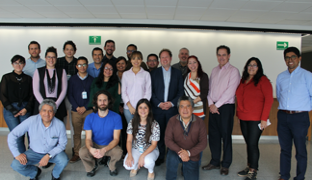
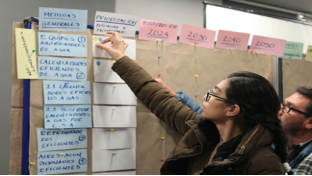
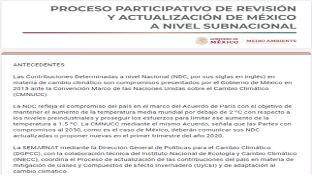
- Development and Socialization of Carbon Budgets and Decarbonization Routes for the Energy Sector
This project provides technical support to the government of the State of Querétaro through the Secretariat for Sustainable Development (SEDESU) and in coordination with the company LiCore A.C. and the Energy Cluster of the State of Querétaro, to conceptualize and create an innovation Hub that promotes technological solutions and innovative business models in renewable energy and energy efficiency.
Since January 2020, the CONECC project has collaborated with SEDESU in the process of shaping the Hub and integrating a Working Group with key actors which include start-ups, big companies, business associations, state authorities, and universities and research centers, in order to facilitate the implementation process. Progress is being made in the legal constitution process, the definition of a portfolio of start-up projects, and the methodology of intervention. The Hub is expected to start operations in the second half of 2020.
The promotion of technological innovation for the energy transition at a local level strengthens the frameworks for promoting local climate action for the energy sector. Consequently, one of the objectives of this project is to identify good practices derived from the strengthening of local innovation communities to promote business models and technologies that foster the decarbonization of the electricity sector, through replicating and disseminating the experience of Querétaro in other federative entities, thereby promoting its escalation to other levels of government in Mexico. In this sense, the publication of a manual for the creation of an Innovation Hub at a subnational level is expected.
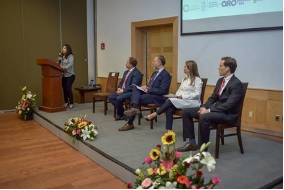
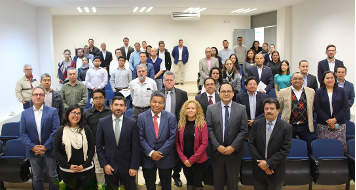
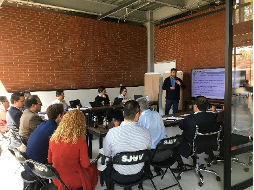
- Study of Climate, Socioeconomic and Public Health Impacts of the National Electric Mobility Strategy
The project seeks to quantify the expected impacts of SEMARNAT’s National Electric Mobility Strategy in terms of climate, energy, social, economic, and public health aspects.
The modelling of the impacts is carried out based on a review of national and international literature and consultations with key actors in the field of electric mobility in the public, private, and civil society sectors. Furthermore, a monitoring tool is being developed to allow monitoring of impacts once in the implementation phase of the strategy.
- Digitization of the Electricity Sector: An Opportunity for Climate Protection?
This project seeks to identify the main digitalization actions in the electricity sector in Mexico that can potentially contribute to mitigating the emissions associated with the energy sector and analyze their potential contribution to climate action. The analysis focuses on three areas: smart grids, smart markets, and energy efficiency.
In 2018, the CONECC project coordinated, along with the Ministry of the Environment and Natural Resources, a study trip to Germany to exchange practices and perspectives on the topic of digitization for climate protection, and the International Forum “Digitalization of the Electricity Sector: An Opportunity for Climate Protection?”. As a result of both processes, the report “Bits and bytes for CO2 savings: The role of digitization of the energy sector for climate protection in Mexico and Germany” is currently in preparation.
e-mail: conecc@giz.de
Twitter: @Conecc_Mx
Publications:
- Study on “CO-BENEFICIOS: Oportunidades de empleo y beneficios locales de la participación de las comunidades en proyectos de energía renovable en Yucatán” (in spanish).
- Study on “Hacia un concepto óptimo para la implementación de un hub de innovación tecnológica energías renovables y eficiencia energética para la acción climática en Querétaro” (in spanish).
- Study on “Haciendo cuentas: Cuantificando los co-beneficios de la acción climática para el desarrollo sostenible en México” (in spanish).
- Study on “Co-beneficios contribución de la transición energética para el desarrollo sostenible en México” (in spanish).
- Study on “Co-beneficios de energías renovables y eficiencia energética para el desarrollo sostenible en México” (in spanish).
- Study on “Convergencia entre los instrumentos e instituciones de la política de cambio climático y energía, a nivel nacional y subnacional en México” (in spanish).
- Study on “Presupuestos de Carbono: una Oportunidad para Ampliar la Ambición Climátia del Sector Energético” (in spanish).
- Study on “Mejorando y refocalizando los subsidios a la electricidad: Opciones para su optimización en México” (in spanish).
